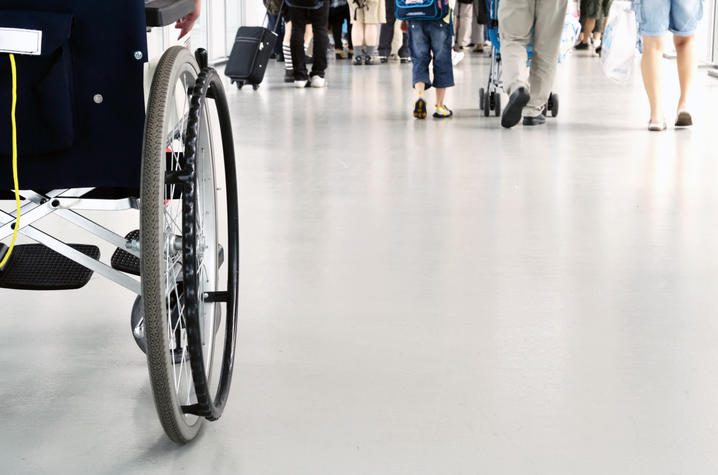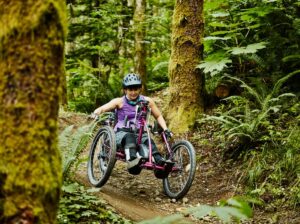Dr. Walt Bower has been involved in disability advocacy for a while but even he is continually learning about the difficulties of air travel for passengers with disabilities.
Bower, HDI’s Pre-Service Training Coordinator recently teamed up with Dr. Julie Pfeiffer, a research assistant at HDI, to hold a panel on wheelchair accessibility during air travel in partnership with the Cincinnati/Northern Kentucky International Airport, known by the airport code CVG.
“Airplanes are the only type of public transportation in the United States that do not have spaces for wheelchair users,” Bower said. “Without such a space, thinking about traveling by air for many individuals with disabilities continues to be challenging, frustrating, nearly impossible, and sometimes even life threatening.”
The panel started with an introduction by HDI’s Jason Jones, who is also a wheelchair user, followed by a panel of wheelchair users which included Dr. Kara Ayres, David Allgood and Paul Erway, who talked about challenges they’ve faced in the past when flying.
“They described their experiences with air travel, some of the anxieties and concerns that they have related to their wheelchair when traveling,” Bower said. “They also talked about, what they wished airports, airlines, TSA agents and others knew about passengers traveling in wheelchairs, or with other disabilities. And they also explained what their wheelchair means to them and their daily life.”
Often, Bower and Pfeiffer said, this includes accessibility on the plane itself, where a narrow central aisle makes it challenging to navigate, and small bathrooms with few accessibility features cause additional issues.
“Although the bathrooms are deemed accessible under the Air Carrier Access Act, they’re typically not accessible to wheelchair users, because they don’t follow the same requirements of accessibility as we would find in the ADA,” Pfeiffer said.
These problems, she added, can be difficult to fix.
“It’s such a large problem because you have to reimagine what an airplane looks like and reimagine the size of things like aisles, doors, and seats,” Pfeiffer said.
However, there are areas cited as major problems by people with disabilities where airlines and airports can make changes far more easily, such as providing additional training on how to prevent loss of and damage to wheelchairs. For example, approximately 32 wheelchairs or scooters were lost, damaged or delayed each day in the American air travel industry during 2023.
“When it comes to other issues that wheelchair users face in air travel, like having their wheelchair damaged when it’s stowed under the plane or difficulty with safety when transferring from their wheelchair to the airplane seat, I think the most impactful thing we can do in those areas is improve training, education and awareness among airline personnel, which is why we held this panel,” Pfeiffer said.
The panel was also recorded so not only CVG, but other airports can continue to use it as training material to ensure that people with disabilities are treated with respect as they travel.
“Through that event, we hope that the conversation and panel moves us forward to bridge the gap between accessibility and airline travel for greater inclusion for all people with disabilities,” Bower said.



